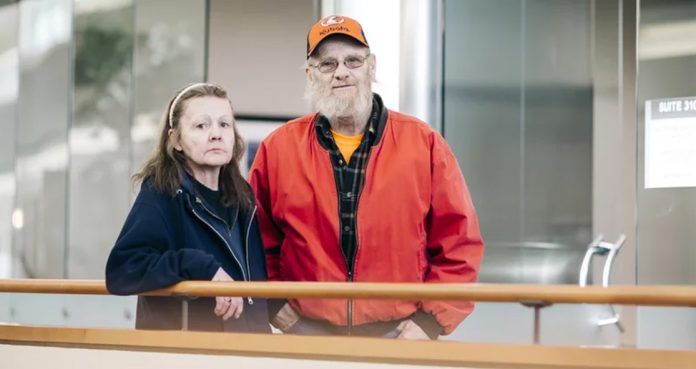The first blow was the massive cardiac arrest that Debbie Moehnke, a Washougal resident, had last summer. She went to a medical clinic in Vancouver. Larry Moehnke, Debbie’s husband said, “She had an appointment because her feet were swollen real bad, but she got in there and it was like, ‘I can’t breathe, I can’t breathe!’”
The 59-year-old woman was rushed to a local hospital where she was stabilized. The next day, she was taken to Oregon Health & Science University (OHSU) in Portland for urgent cardiac care, where she needed heart bypass surgery.
As she was recovering from that surgery, Debbie developed an infection that required powerful intravenous antibiotics. She had to spend a month in the hospital, including a few days of intensive care, before she was discharged.
Here comes another blow: a surprise medical bill of nearly $454,000 for the treatment that saved her life. Officials said that of that hefty amount, she owed approximately $227,000 after her insurer paid its part.
Debbie, a former cocktail waitress, who is suffering from early-onset dementia, was in a complete shock. She said, “I wish I would have known. I would have said ‘no’ to life support. We’ll lose everything.”
Surprise medical bills like Debbie received have now become a national epidemic, infuriating patients across the United States.
Olympia lawmakers this year have been trying for the fourth time to pass a bill banning such practice that leaves patients with no options than to burn their pockets.
The bill would be beneficial to patients; however, there has been formidable pushback from insurance companies, hospitals as well as physicians.
Debbie’s emergency medical care totaled over $454,000. Her insurer agreed to pay about half the amount, leaving her responsible for the rest. However, the bill was eventually erased with help from a patient advocate.
Oregon, where Debbie was treated, has a law banning surprise medical bills, which actually took effect last year. However, that applies only to out-of-network charges that are sent to patients who received medical care from an in-network provider. And that covers only insurers regulated in the state, which eliminates Debbie’s plan, said the state insurance officials.
The proposed Washington law would ban balance billing for most of its nearly 6 million insured consumers below 65 years of age.
Despite having a well-subsidized plan, Moehnkes had to face crushing medical bills. In Debbie’s case, the total bill was $454,550.54; of that amount, her insurer paid $227,959.19, which left the Moehnkes to pay $226,591.35.
Debbie’s husband Larry, who is a big-rig truck driver, said, “What do you think you’re going to do, squeeze blood out of a turnip?” What they get is $1,884 a month through his Social Security income.
Bo Jungmayer, a spokesperson of LifeWise said that the insurer paid for her emergency medical care to the extent that is required under the Affordable Care Act.
Larry recalled, “They never said anything about not being ‘in network’ or anything.”
Debra Tomsen, the director of OHSU hospital billing and coding, said, “LifeWise officials should have notified the Moehnkes after receiving bills for nearly $250,000 halfway through her stay. Insurance should tell them they’re incurring out-of-pocket costs.”
On the contrary, Jungmayer said it was up to OHSU to inform Debbie Moehnke about the high medical bills and about the alternative to transfer her to another hospital.
Early this month, after frequent inquiries about Debbie’s care, the outstanding bills were resolved.
The couple applied for a medical charity care waiver, which is in itself a complicated process, with the help of Jared Walker, who runs a non-profit organization called Dollar for Portland. OHSU officials then erased the rest of the amount. OHSU spokesperson confirmed it through an email, stating, “Their balance is now zero.” The Moehnkes are pretty relieved now; however, they had to undergo a lot of stress due to such a hefty amount for six months. Larry recalled, “Nobody ever said anything about charity care.”























